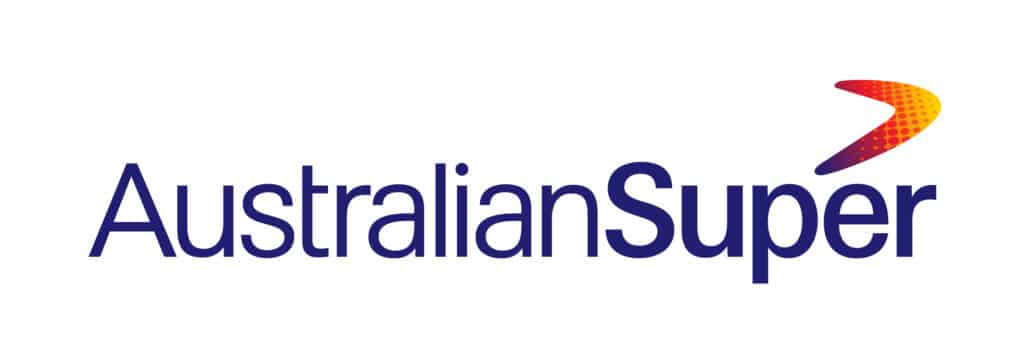Most employers offer a variety of retirement benefits, including superannuation, to their staff members.
These retirement benefits are either voluntarily or as a result of a legal requirement to keep workers on staff for a longer period of time.
The National Pension System, a provident fund, and other benefits are examples of such retirement benefits. One such retirement benefit provided to employees by their employers is superannuation.
Employees frequently disregard this retirement benefit. Since they did not pay into the benefit directly, many people might not even be aware that they were given a superannuation benefit.
Some people might not know how much superannuation they are entitled to when they retire. Given this, it is critical to comprehend the superannuation benefit in order to assist people in making better financial decisions and effectively planning their retirement.
My contact details are hello@adamfayed.com and WhatsApp +44-7393-450-837 if you have any questions.
The information in this article is for general guidance only. It does not constitute financial, legal, or tax advice, and is not a recommendation or solicitation to invest. Some facts may have changed since the time of writing.
What is a Superannuation?
Superannuation refers to the portion of your income and savings that is put into a fund and typically kept there for you to use after you retire. Superannuation’s goal is to deliver retirement income that either replaces or augments the Australian Age Pension.
Superannuation plans, which are available in Australia, are more frequently referred to as such. Definable-benefit or defined-contribution plans are the American equivalents of superannuation plans.
In Australia, there are numerous superannuation providers, and there may be significant variations in how they invest members’ funds and how well those investments do.
Based on investment returns from providers in Canstar’s database, you might be interested in reading about the top-performing super funds.
It’s crucial to keep an eye on the fees you’re being charged because they can differ significantly between funds. With regular premiums deducted from the member’s account balance, the majority of funds provide insurance to members through their super.
According to whether you’re single or in a couple and whether you want to live modestly or comfortably, the Association of Superannuation Funds of Australia (ASFA) has a Retirement Standard that estimates how much you’ll need in retirement.
According to recent estimates, you’ll need roughly two-thirds (67%) of your pre-retirement income to live comfortably in retirement. According to ASFA’s figures for the December quarter of 2021, this translates to annual living expenses for a couple seeking a comfortable retirement of $64,771.

Types of Superannuation Plans
In Australia, super funds refer to two different types of superannuation funds.
Accumulation Funds
An accumulation fund is, in essence, exactly what its name implies. The fund is systematically augmented by periodic contributions from both employees and employers. The funds are intended to grow as a result of the contributions being used in investment strategies that produce a return on investment and enable greater distributions.
Retirement benefits from accumulation funds are determined by the returns produced, so the more you invest and the more the fund grows, the more you can receive in retirement.
Defined Benefit Fund
Defined benefit plans are investments that distribute money based on a formula to provide a fixed income when withdrawals start. These are comparable to annuities or pension plans where the length of employment and salary history are taken into account.
How Does Superannuation Work in Australia?
If you currently work as an employee in Australia and satisfy the Superannuation Guarantee’s minimal requirements, your employer is required to contribute at least 10% of your regular income to a super fund.
The Super Guarantee is the name of the additional payment made on top of your yearly salary. No matter your employment status—casual, part-time, full-time, contractor, or even temporary resident—you are required to receive superannuation.
The Super Guarantee is expected to rise gradually to 12% by 1 July 2025, with the following increase bringing the rate up to 10.5% on that date.
Most people can simply inform their employer of their preferred super fund and the account to which they want super payments made when they start a new job or start working for the first time.
Your employer must deposit super into your “stapled fund” if you don’t choose a fund and have previously received super benefits.
Your employer will open an account for you with its default super fund and deposit your super contributions there if you have never received super benefits and have not designated a preferred fund.
Where Is Superannuation Invested?
Your fund invests the money you have in a superannuation account in a variety of assets. Depending on your stage of life or other factors that are important to you personally, you may decide to invest your super in a different way at different times.
The majority of funds allow members to select their preferred investment mix based on risk assessments.
For instance, AustralianSuper, the biggest super fund in Australia, gives members a variety of investment options based on how “hands-on” they want to be with managing their investments.
AustralianSuper also advises that when choosing investment options, you should think about how much risk you are comfortable with.
It lists various types of risk, such as adequacy (your amount of super compared to your retirement needs), inflation, volatility (market risk), market timing, interest rates, liquidity, agency (the risk of third parties mismanaging investments), currency (movements in exchange rates), credit (the risk of a security’s issuer not repaying borrowed money when it’s due), and policy (the risk of regulatory and rule changes impacting your investment).
According to ASFA data, Australia’s super assets reached a value of $3.4 trillion as of September 2021.
624 billion dollars’ worth of assets were invested in international shares at about 28%, Australian listed shares at about 23%, and other assets like cash, Australian fixed interest, foreign fixed interest, listed and unlisted property, infrastructure, hedge funds, unlisted equity, and other assets at smaller percentages.
The balanced default option for a super fund is where most Australians invest their money, but whether or not this is the best option for you will depend on your unique needs and requirements.

Benefits of Superannuation
There are lots of advantages to superannuation. The most noteworthy include:
- Fees are typically lower than those for other retirement account options.
- Simple features: The majority of supers only offer what you require and give you options for any additional services.
- Supers usually give you the freedom to select the types of investments you want to make. You can select from a variety of super funds, including retail, industry, public, corporate, and self-managed ones, depending on your preferences.
- Super funds can be “stapled” to you rather than the employer so that they follow you throughout your career. Stapled super funds are what these are.
- They can be accessed early without incurring penalties if you become permanently disabled, temporarily unable to work, or suffer from a terminal illness.
- Continual income in retirement: Superfunds ensure that you won’t outlive your retirement savings.
- Government contributions up to $500: If you meet certain requirements, the government will make a contribution to your super fund of up to $500.
Superannuation for Employers and Employees
Employers
Depending on a number of variables, a defined benefit superannuation provides a fixed, predetermined benefit; however, it is not reliant on market performance.
The duration of the employee’s employment with the company, their salary, and the precise age at which they start receiving the benefit are all specific considerations.
These benefits are frequently valued by employers for their predictability. They can be more difficult to manage from a business standpoint, but they also permit larger contributions than some U.S. employer-sponsored plans.
Although accumulation funds are less predictable than defined benefit plans, they still depend on the same variables.
A set tax rate of 15% is applied to contributions made to a super account by employers. Although your super fund is subject to a 15% tax on contributions made by self-employed individuals, you can deduct them from your taxes.
Employees
An eligible employee receives a fixed sum upon becoming eligible for retirement, typically on a monthly basis (in a defined benefit plan).
As previously stated, a pre-existing formula is used to determine the amount. In that sense, superannuation serves a similar purpose to receiving Social Security benefits after reaching a certain age or in a certain situation.
When the market is uncooperative, accumulation funds can lower payouts, but they can also increase them. Employees who choose this type should exercise caution.
To access the funds in the most tax-effective manner possible, other implications that may need to be taken into consideration depending on what other retirement savings vehicles the employee has.
After-tax contributions made to a super are not subject to taxes. However, there are some circumstances in which the fund’s capital gains are taxable. Each individual has a super capital gains tax cap that they are able to deduct from their non-concessional gains.
Pained by financial indecision?

Adam is an internationally recognised author on financial matters with over 830million answer views on Quora, a widely sold book on Amazon, and a contributor on Forbes.



